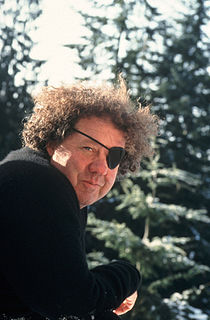A Quote by John Milton
By night the Glass
Of Galileo ... observes
Imagin'd Land and Regions in the Moon.
Related Quotes
There was just one moon. That familiar, yellow, solitary moon. The same moon that silently floated over fields of pampas grass, the moon that rose--a gleaming, round saucer--over the calm surface of lakes, that tranquilly beamed down on the rooftops of fast-asleep houses. The same moon that brought the high tide to shore, that softly shone on the fur of animals and enveloped and protected travelers at night. The moon that, as a crescent, shaved slivers from the soul--or, as a new moon, silently bathed the earth in its own loneliness. THAT moon.
It was like noticing the sun. You couldn't help but see it, to turn to face the heat of it, to bask in the glory of it. But often when the sun is high in the sky, the moon is up there, too. A dim memory of what she will be in the night, but there, nonetheless, dim and misty, hard and white. At night, there is only the moon, the sun is nowhere to be seen. There are no distractions when the moon rules the sky.
I actually don't remember Apollo 11 exactly because, at the time, I was five years old. The landing happened at night, and the walk on the moon happened at night eastern time, and I asked my parents; my mom said I was probably asleep, and so I just don't have any recollection. I do have recollection of the later missions to the moon.
The Moon is a white strange world, great, white, soft-seeming globe in the night sky, and what she actually communicates to me across space I shall never fully know. But the Moon that pulls the tides, and the Moon that controls the menstrual periods of women, and the Moon that touches the lunatics, she is not the mere dead lump of the astronomist. . . . When we describe the Moon as dead, we are describing the deadness in ourselves. When we find space so hideously void, we are describing our own unbearable emptiness.







































